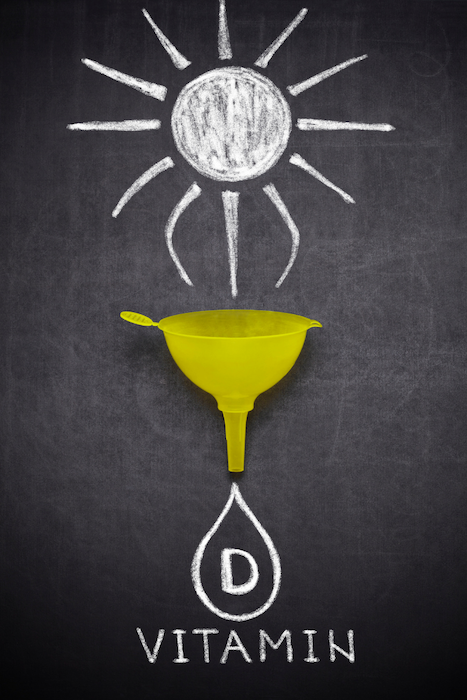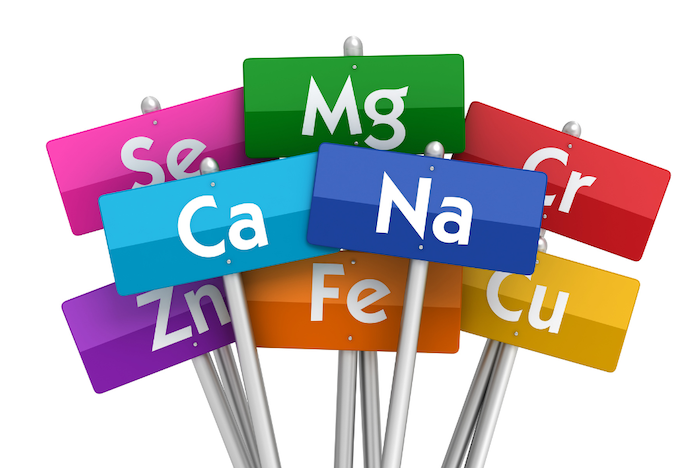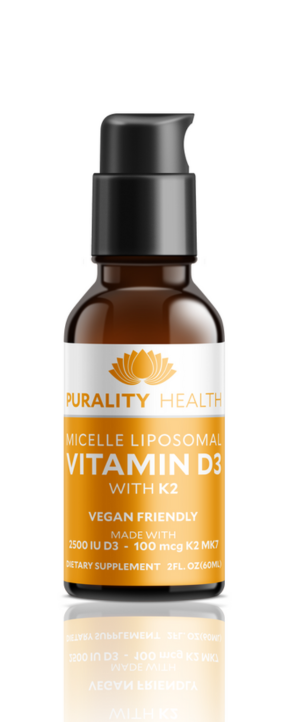
When it comes to taking CBD and other cannabinoids, what you’re actually doing for your body is bringing a balance.
But there are other things you can take– like vitamin D – to balance your systems (we’ll get into that below).
CBD brings balance because of your endocannabinoid system (ECS). In your body, your ECS is an intricate network of receptors and cannabinoids. It’s best to think of the receptors as locks and the cannabinoids as keys that open or “activate” the locks.
You can read more on the ECS and how it works in our blog here.
All too often, people have a shortage of natural endocannabinoids, so bringing in cannabinoids like CBD – which is a versatile cannabinoid that boosts other cannabinoids – helps rebalance this system, benefiting bodily functions like pain, sleep, appetite, metabolism, learning and memory, and more.
But the ECS doesn’t just interact with cannabinoids.
Plenty of evidence indicates that the ECS plays an important role in the regulation of hormone release and activation.
In short, hormones are chemical messengers that carry instructions to organs and tissues to carry out certain functions. They differ from endocannabinoids in how they’re released and transported through the body. While endocannabinoids are neurotransmitters released in the brain, hormones are secreted by the endocrine glands in the body. And while endocannabinoids are transmitted through neurons, hormones are carried through the body via the blood.
Similar to endocannabinoids, hormones bind to receptors on cells. And just like with endocannabinoids and the ECS, your body can have an imbalance of hormones and receptors, disrupting several functions throughout the body.
So, what does this have to do with vitamin D?
We’re glad you asked…
Balancing your systems with vitamin D
Here’s something a lot of people don’t know…
Vitamin D is actually a hormone.
This is because vitamin D functions in the body like a hormone – helping to control how cells and organs function. But we call it a vitamin to drive home its importance. The word “vitamin” is derived from “vita,” meaning life, and “amine,” referring to a substance that is essential for life, and we cannot live without vitamin D.

Our bodies produce vitamin D when exposed to sunlight, but because it’s such a challenge to be exposed to strong enough sun for extended periods of time (especially without damaging the skin), it can be difficult to get an adequate amount of the vitamin.
This is why an estimated 42% of Americans are deficient in vitamin D.
But it’s crucial to ensure that you have enough of this essential vitamin. This is why doctors recommend supplementing with vitamin D year-round.
So how does vitamin D bring further balance to your body?
Interestingly, research shows that vitamin D make help with your actual balance. Research published in the British Medical Journal (BMJ) found that increased intake of vitamin D3 could reduce fall risk by 26% in older adults! [1]
Researchers believe this is because vitamin D reinforces bone and muscle strength.
But how does this vitamin bring balance to your body’s systems?
Keep reading to find out!
Vitamin D and hormone balance
Research has indicated that vitamin D is needed for optimal hormone balance. It’s been shown to help the body regulate the production of hormones like estrogen, testosterone, and progesterone.
When low in vitamin D, common symptoms include fatigue, anxiety, depression, difficulty concentrating, and more. Many of these symptoms are directly linked to a hormone imbalance, leading researchers to believe that vitamin D deficiency symptoms are actually due to a lack of regulation in the endocrine system.
By increasing vitamin D levels and properly maintaining them, you can restore hormonal balance and eliminate these symptoms.
Vitamin D and fertility
Fertility relies heavily on several hormones, especially in women, such as estrogen and progesterone. Because of how vitamin D balances these two hormones, it’s seen as a crucial nutrient for those looking to conceive.
Estrogen is essential for healthy ovarian function and a regular menstrual cycle. Low levels of estrogen may lead to issues such as missed or irregular periods, infertility, or even an increased risk of developing certain cancers.
Progesterone is vital for a healthy pregnancy. Getting pregnant and/or sustaining a healthy pregnancy can be difficult without healthy levels of progesterone.
Studies have found that women with adequate vitamin D levels have a higher chance of conceiving than those with low vitamin D levels.
But it’s not just women. A 2021 meta-analysis found an association between vitamin D deficiency and male fertility, including it effects on sperm count and health.
Vitamin D and mineral balance

When you hear about vitamin D benefits, one of the biggest things people will tell you is about how vitamin D is good for your bone health. But why is that?
It mainly has to do with how vitamin D balances calcium levels within the body. Without vitamin D, your body may not be able to take in calcium at all, as vitamin D helps your body absorb the calcium you consume.
Once it’s helped you take in calcium, vitamin D is then responsible for balancing the amount of calcium in your blood versus your bones. While it’s needed for functions like muscle contractions, normal heart rhythm, and nerve function, you don’t want all of your calcium in your blood. If too much calcium is in your blood, it can build up and solidify, causing serious issues within the cardiovascular system. And you don’t want all of your calcium going straight to your bones because, well, then you wouldn’t have any in your blood for the above functions!
Vitamin D also helps with the absorption of another mineral, phosphorus, helping you to have normal levels.
Vitamin D and gut microbiome balance
In your gut lives trillions of bacteria. New research is indicating that the type of bacteria in your gut can impact everything from your immune system to your memory to how your skin looks.
Several studies have found a link between vitamin D levels and the health of the gut microbiome.
Tests have been done on how increased vitamin D intake affects the microbiome, with many interesting results. For example, one study showed that taking vitamin D lowered pro-inflammatory cells within the gut and bolstered immune cells, leading researchers to believe that vitamin D’s ability to balance immunity has to do with its actions within the gut.
Not only that, but plenty of studies have shown that taking vitamin D allows for a more diverse microbiome, which researchers agree is the key to a healthier gut.
Vitamin D and immune system balance
As mentioned above, vitamin D is also known for balancing the immune system.
To be effective, it’s important for the immune system to be perfectly balances. Too much stimulation can result in an autoimmune disease, whereas not enough can cause constant infections. Low levels of vitamin D have been linked to both extremes, as healthy levels keep things nice and balanced.
Studies have shown that healthy levels of vitamin D can lower the chances of getting sick by up to 42%. Researchers believe that consistent daily intake of the vitamin is better for immune support than large sporadic doses.
All of this is because there are vitamin D receptors and activating enzymes on the surfaces of all white blood cells.
Finding balance with vitamin D

If you find that CBD has helped your body find balance, then it’s time to bring further balance to your systems with vitamin D.
But like CBD, it’s important to get a form of vitamin D that your body can actually absorb and use.
That’s why our sister company, Purality Health, made their Micelle Liposomal Vitamin D3/K2 formula.
They use the same micelle liposomal formula as SomaLeaf so that the vitamin is protected and shuttled directly into the blood stream.
That way, you can actually experience the benefits of this essential vitamin.





